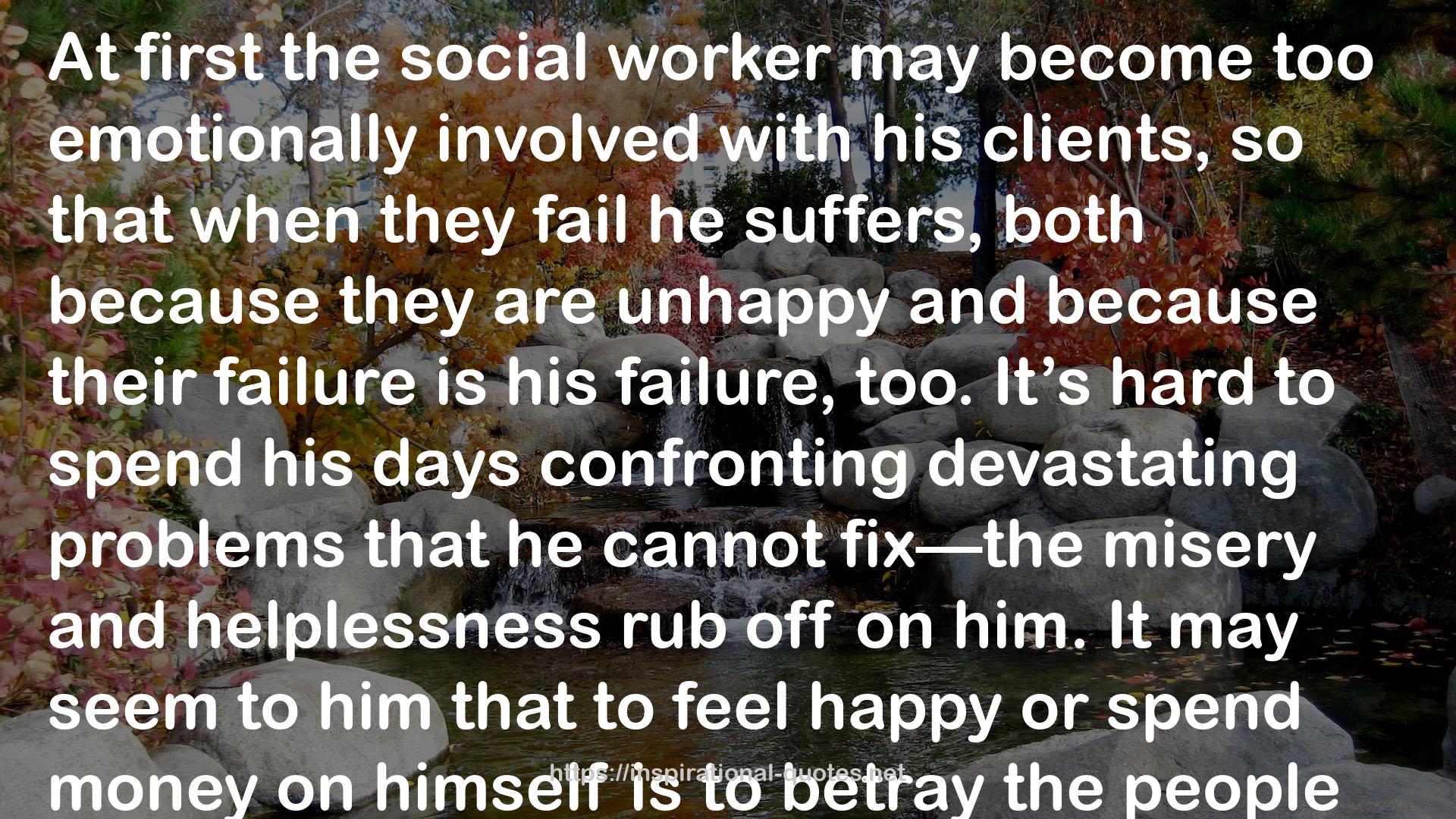" At first the social worker may become too emotionally involved with his clients, so that when they fail he suffers, both because they are unhappy and because their failure is his failure, too. It’s hard to spend his days confronting devastating problems that he cannot fix—the misery and helplessness rub off on him. It may seem to him that to feel happy or spend money on himself is to betray the people he knows who are still suffering; or it may seem that his own unhappiness is a sign of his devotion. Perhaps he becomes angry, blaming systems and society for what he cannot fix himself.
Gradually, he learns to be more detached. He realizes that he needs to be tough, and to develop a thick skin. But if he becomes too detached, he stops caring about his clients at all. Perhaps he withdraws into cynicism and self-defense, as he feels his ideals and his sense of potency wither. Longer-serving people in the office notice the waning of his enthusiasm, and welcome him to their gallows-humor fellowship. He retreats into apathy and jokes and drinks after work. But even with his fellow apathetics to keep him company, the situation is depressing, and he looks for a way out. "
― Larissa MacFarquhar , Strangers Drowning: Grappling with Impossible Idealism, Drastic Choices, and the Overpowering Urge to Help
